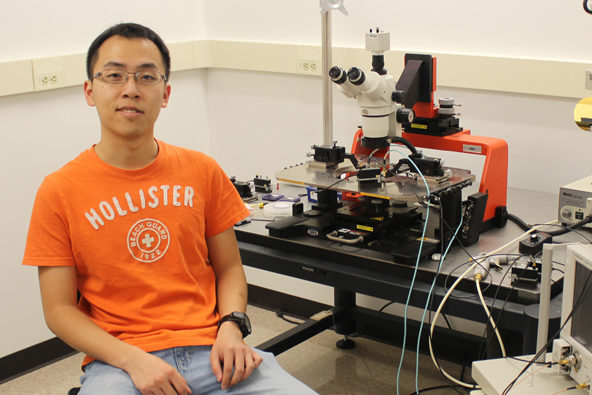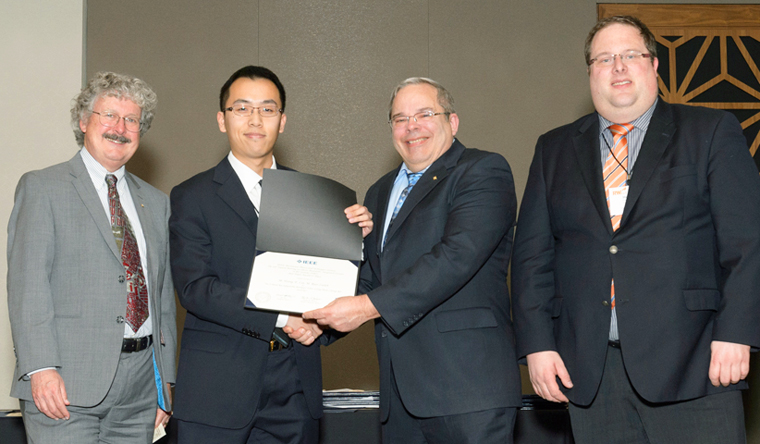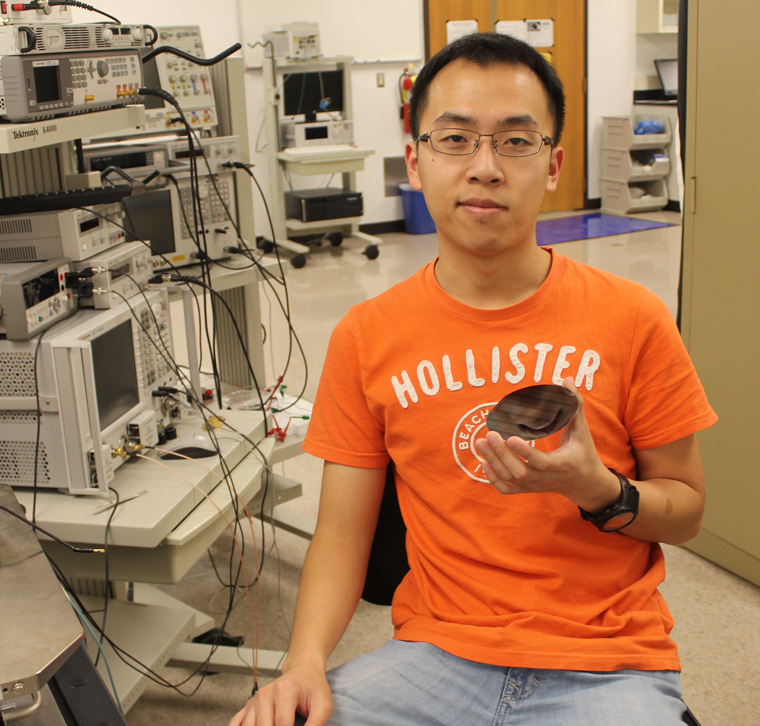Muzhi Wang earns a Best Paper Award for a new tunable filter for wireless communication devices
The paper describes a tunable filter for wireless communication modules in the x-band frequency range that uses germanium-telluride phase change switches.

 Enlarge
Enlarge
Muzhi Wang, third year PhD student in ECE, has earned a Best Paper Award at the 2016 Meeting on Silicon Monolithic Integrated Circuits in RF Systems (SiRF) for his paper, “An X-Band Reconfigurable Bandpass Filter Using Phase Change RF Switches.”
The paper, co-authored by Feng Lin and Muzhi’s advisor, Prof. Mina Rais-Zadeh, describes a tunable filter for wireless communication modules in the x-band frequency range that uses germanium-telluride (GeTe) phase change switches. This is the first implementation of a tunable filter to use GeTe switches.
Compact and low-loss tunable filters are used in many wireless communication devices, including cognitive radios, anti-jamming systems, and advanced transducers. Currently, solid-state or RF MEMS switches are among the most popular options for the tunable components in wireless modules. These switches are evaluated based on performance, power handling, switching speed, and ease of integration into different circuits.

 Enlarge
Enlarge
Muzhi’s GeTe switch has performed comparably to MEMS switches, with the added bonus of a simpler fabrication process. Among other results, the GeTe switch shows a faster response time and requires smaller voltage pulses for actuation than MEMS tunable filters.

 Enlarge
Enlarge
“Currently this switch is still in the research and development phase,” Muzhi says. “Now that we’ve gotten some good results we can start integrating them into more complex circuits as a proof of concept.”
Muzhi received his bachelor’s degree from Michigan in 2013, after transitioning from two years at Shanghai Jiao Tong University. As an undergrad, he took on a summer research opportunity with Prof. Rais-Zadeh that introduced him to MEMS and the world of nanofabrication. He enjoys having a hand in the entire research and development process for his projects.
“I get to do the whole design of the switch, and then be the one to actually fabricate those devices,” he says. “I do the whole thing: from the design, to the testing and measurements, to the next cycle of redesign. Michigan really has this advantage because the cleanroom is so advanced.”
Previously, Muzhi was the recipient of a best student paper award at the 2014 IEEE International Microwave Symposium (IMS2014) for his research in RF MEMS switches for high-power RF applications.
 MENU
MENU 
